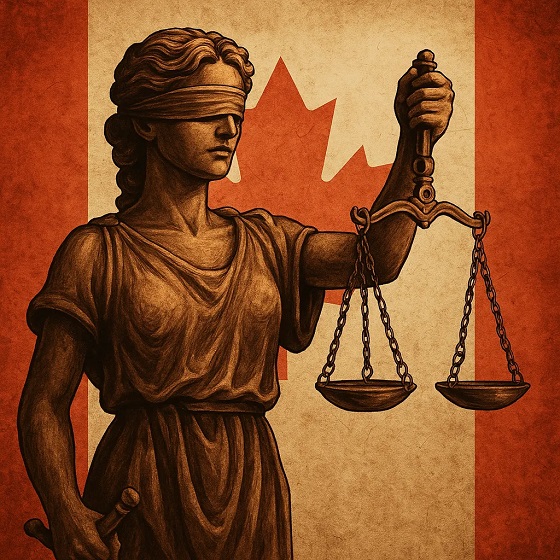Censorship Industrial Complex
Is free speech over in the UK? Government censorship reaches frightening new levels

From LifeSiteNews
By Frank Wright
Instead of changing policies which threaten the collapse of Western civilization, the liberal-global governments prefer to make public opposition to their politics a crime.
The UK’s crackdown on free speech continues, with two online platforms withdrawing over censorship concerns – whilst liberal-critical speakers are banned from entering Britain, and even arrested on arrival.
Following the introduction of laws which could see online platforms fined millions of pounds, free speech social media company Gab and video sharing platform Bitchute have withdrawn their services from UK users.
As Reclaim the Net, a UK-based online freedom campaign group, said on March 28:
“The British government has begun aggressively extending its censorship regime beyond its borders, invoking the sweeping powers granted by the Online Safety Act 2023 to demand compliance from foreign-based platforms.”
Bitchute withdrew its services from UK users “over online censorship laws,” as the Free Speech Union reported on April 10. Gab’s statement, published on its UK domain, said the company was acting to protect British users from being jailed for posting on its platform:
After receiving yet another demand from the UK’s speech police, Ofcom, Gab has made the decision to block the entire United Kingdom from accessing our website.
This latest email from Ofcom ordered us to disclose information about our users and operations. We know where this leads: compelled censorship and British citizens thrown in jail for ‘hate speech.’ We refuse to comply with this tyranny.
The UK government claims its laws support “online safety” – but as Reclaim the Net explains, “critics argue … the term … is being used as a smokescreen for state-sanctioned thought control.”
The future of information in Britain looks bleak, as one UK commentator said, promising a “TV version” of the internet – sterilized by UK government media watchdog Ofcom:
“Unless the White House really forces Britain to do it, Ofcom will not be abolished, because the mainstream parties approve of it and no party that doesn’t will be allowed anywhere near power.”
Millennial Woes concludes that there is likely a “hit list” of further online platforms to be taken down in order, beginning with video outlets Odysee and Rumble, the messenger service Telegram, then the free speech publisher Substack – and on to Elon Musk’s X.
Woes warns:
“If allowed to continue in its current mode, Ofcom will take down the platforms it wants to, then tame the others by hook or by crook. The Internet in Britain will be a homogenised, redacted farce – a pathetic ‘TV version’ of what people in more civilised countries have.”
Cambridge professor arrested
The charge of “state-sanctioned thought control” is reinforced by the arrest – on Good Friday –-of a Palestinian Christian and Cambridge University professor at London’s Heathrow Airport. The reason for Professor Makram Khoury-Machool’s detention was that he has spoken out against Israel’s war in Gaza, as reports from the UK said.
“Keir Starmer’s long and intensifying war on pro-Palestine, anti-genocide speech through the misuse of the Terrorism Act … has continued to escalate,” noted UK outlet Skwawkbox, which covers stories such as this – neglected by the mainstream press “because it doesn’t fit their agenda.”
Professor Khoury, whose speech was criminalized under anti-terror laws, had in the past co-founded an anti-extremism institute in 2016 at Cambridge University.
British left-populist George Galloway responded on X (formerly Twitter), saying the arrest of this “gentle, devout moderate academic father” suggests that the “government has declared war on its own citizens, that liberty is dead in this land, and that Britain is no longer a safe country.”
Galloway’s warning of “It can happen to you. And it will” came a day after reports that a French philosopher noted for his outspoken criticism of mass migration had been banned from entering the UK.
French anti-migration speaker banned
Renaud Camus is the author of The Great Replacement – coining a term now used to describe the liberal-global policy of the replacement of Western populations via mass immigration.
The “great replacement” is routinely “debunked” by the ruling elite as a “conspiracy theory.” As Camus once said to Britain’s Matt Goodwin, “How can it be debunked when it is evident in every street?”
He was due to speak at a “remigration conference” in England on April 26. Organized by the nationalist Homeland Party, it is dedicated to the discussion of policies similar to those now being enacted by the Trump administration.
According to the Daily Telegraph, Camus was denied entry to the UK by government order.
In an email seen by The Telegraph, the Home Office informed Mr Camus that he had been denied the electronic travel authorisation (ETA) needed to enter Britain.
‘Your presence in the UK is not considered to be conducive to the public good,’ the email read.
The Telegraph reports that Mr Camus, “who is gay and has advocated for non-violence,” supplied one convincing explanation for his treatment:
[He] told The Telegraph that ‘of all the European governments guilty’ of allowing unchecked migration, ‘the British government is one of the guiltiest’.
‘No wonder it does not want me to speak,’ Mr Camus added.
The fact the British government is banning speakers who promote policies now being enacted with widespread support in the United States has not only provoked criticism – it may derail UK/U.S. trade negotiations.
Days ago, Vice President JD Vance warned UK Prime Minister Keir Starmer that Britain will get no deal with the U.S. over tariffs if its “hate speech” laws remain in place.
“Sir Keir Starmer must embrace Donald Trump’s agenda by repealing hate speech laws in order to get a trade deal over the line, a Washington source has told The Independent.”
A “Washington source” told the UK-based Independent, “No free speech, no deal. It is as simple as that.”
Vance has been a stern critic of British and European moves towards increasing censorship and the suppression of freedom of opinion, describing it in his February Munich speech as a “threat” to democracy “from within” Western Europe – and one which is led by its liberal-globalist governments.
Vance is reportedly “obsessed by the fall of Western civilisation,” The Independent’s Washington source explained. It is clear that Vance believes that this fall is very much a threat created by the political decisions of governments like Starmer’s.
The use of “hate speech” and “anti-terrorism” laws in these cases shows how the UK state-sanctioned suppression of speech affects anyone – from the left, right, or from the Christian faith – who criticizes the policies of the government.
These are not fringe extremist views, but those held by increasing numbers of ordinary people in Britain and throughout the Western world. Instead of changing policies which threaten the collapse of Western civilization, the liberal-global governments prefer to make public opposition to their politics a crime.
In the case of the British state, its hardline stance to defend its idea of democracy from free speech is now threatening its economic future. The politics and laws celebrated as the guarantee of safety increasingly resemble a form of extremism which will not tolerate debate.
Censorship Industrial Complex
Bill C-9 and the Tyranny of Feeling Heading Straight for Canadians

When governments turn offence into law, liberty collapses into sentiment. Canada risks importing Britain’s mistakes, just as J.D. Vance warned Europe in Munich.
On February 14th of this year (coincidentally, the anniversary of Justin Trudeau’s invocation of the Emergencies Act against protestors), in the grand hall of the Munich Security Conference, J.D. Vance startled Europe’s elites by saying what few of them expected to hear. The greatest threat to their democracy, he argued, was not Moscow. It was their own governments that turned on their citizens in the name of fighting misinformation and hate. Vance catalogued the evidence with blunt precision: British citizens arrested for jokes on Twitter, preachers detained for quoting scripture, elections tampered with under the smiling banner of progress. The room bristled with discomfort, yet the truth could not be mistaken. Western democracies are abandoning the free expression that once sustained them, and they are doing so under the new morality of emotion.
Canada now finds itself in that same trajectory with Bill C-9, Ottawa’s latest legislative foray into the culture war. It is being sold as the Combatting Hate Act, a law meant to protect vulnerable minorities and to defend sacred spaces from intimidation.
Peel back the packaging and its essence appears at once: the codification of subjective feelings into the Criminal Code. What the United Kingdom has lived through for the last decade, police investigating citizens for limericks and memes, Canada now risks importing as law.
The mechanics of the bill are deceptively technical. Until now, prosecutions for so-called hate propaganda required the Attorney General’s approval. That safeguard was in place to ensure that prosecutions were filtered through political accountability and not simply triggered by an activist’s complaint. Bill C-9 abolishes that filter, placing the discretion squarely with police officers who will be pressed to act on every allegation. Remember how the cops acted during COVID.
The bill then goes further by creating new offences for the “willful promotion of hatred” through words, symbols, or representations, a category so broad it could ensnare a placard at a school board protest or a verse from scripture. It also introduces a stand-alone “hate crime” category in which the motive itself becomes the crime. In short, it criminalizes thought. Finally, it expands criminal liability to anyone who obstructs or intimidates access to religious or cultural sites. In the last five years, the law in Canada has not been exceptionally diligent in prosecuting church arson and gunfire attacks on synagogues, despite existing laws. The C-9 wording is so loose that a prayer vigil outside an abortion clinic or a parents’ protest at a school could easily fall within its net.
Why does this matter? Because it moves the law away from objective acts of violence or harassment and into the murky realm of motive. It is one thing to punish a man for assault; it is quite another to punish him more severely because a cop or judge claims to know the intention behind his act. It is one thing to outlaw threats; it is quite another to treat blunt disagreement as hate. The result is predictable. Citizens will censor themselves on questions of immigration, gender ideology, or religious teaching because the cost of speaking plainly will be too high. The process itself, arrest, seizure of devices, and the humiliating headline will become the punishment.
The British experience shows us the road ahead. Harry Miller, a former policeman, was investigated in 2019 for retweeting a limerick that mocked gender identity theory. Police recorded a “non-crime hate incident” in his file and told him they needed to “check his thinking.” Paul Chambers, in 2010, made a sarcastic joke on Twitter about blowing up an airport after his flight was cancelled. He was arrested, fined, and lost his job, but was acquitted only years later, by which time the damage had already been done.
Haultain Research is a reader-supported publication.
To receive new posts and support our work, consider becoming a free or paid subscriber.
In 2020, Kate Scottow was detained and held for questioning because she “misgendered” someone online; her children were left alone as police seized her devices. British street preachers have been hauled away for reading biblical verses aloud. Even football fans have been arrested for chants and tweets. In a single year, British police recorded 120,000 “non-crime hate incidents” and arrested roughly 3,000 people for “grossly offensive” posts.
The phrase in Britain is “grossly offensive.” The phrase in Canada will be “wilfully promoting hatred.” Both are so elastic that they depend solely on the complainant’s feelings. In effect, the state outsources its standards to the most sensitive or malevolent among us, empowering activists to wield the criminal law as a bludgeon against their opponents.
Here, J.D. Vance’s speech in Munich is especially relevant. He noted that Western elites have become adept at justifying repression under the guise of safety. They claim to fight disinformation, but in practice, they suppress opposition. They claim to defend minorities, but in practice, they silence majorities. They claim to defend democracy, yet in Europe, they annul elections. In Canada, there is now a push to criminalize dissent.
What emerges is a selective enforcement regime in which elites are exempt and ordinary citizens are vulnerable. A tweet from a farmer in Red Deer will be treated as criminal, while a prime minister declaring that parents who question gender ideology are extremists goes unpunished.
Beneath all of this lies a deeper cultural drift. Bill C-9 is not merely bad law. It is bad philosophy. Modern governments have learned to glorify emotivism, to elevate feelings over objective reason because emotions win elections. The Canadian philosopher Charles Taylor clearly saw this trend in his Massey lectures, later published as The Malaise of Modernity. Allan Bloom did the same in his Closing of the American Mind.
Taylor warned that when cultures replace shared standards of truth with the subjectivity of self-expression, they hollow out the ground beneath their toes. Bill C-9 is the juridical form of that malaise, the victory of the subjective over the rational, the enthronement of offence as a legal standard. When reason is abandoned, politics slides into tyranny, for then only force remains to adjudicate among clashing feelings.
The antidote against those who want to curtail your speech is not silence but more speech. Resistance begins with refusing to be cowed. State the obvious, again and again: men are not women, women are not men, for example. The categories of nature are not dissolved by individual whim.
Hannah Arendt, who more than anyone decoded the mechanisms of totalitarianism in the twentieth century, insisted that the greatest threat to power was not always open rebellion but ridicule. Mock the absurdities of their ideology, not in cruelty but in charity. Expose them as unserious, as unscientific, as laughable. Power that relies on emotion and feeling cannot withstand laughter. The rule of sentiment is brittle, which is why it demands coercion to sustain itself.
John Stuart Mill remains the strongest guide here. In On Liberty, he reminded us that the suppression of any opinion, however offensive, robs society of the chance to test truth. If an opinion is wrong, it sharpens truth by contest; if it is right, then silencing it robs us of truth itself. Mill’s harm principle is stark in its relevance. The state may act only to prevent real harm, not to shield citizens from chafed feelings. Hurt feelings are the price of liberty, and liberty is the most valuable condition for reason to flourish. When governments claim the right to protect citizens from offence, they do not protect minorities; they infantilize everyone.
So who loses under Bill C-9? Faith communities, whose doctrine can be branded hateful. Parents who risk charges for questioning curricula. Feminists who fight to preserve sex-based protections. Protesters, from truckers to farmers to pro-life advocates. And ordinary Canadians online, whose memes and jokes can be turned into evidence of “hate propaganda.”
Bill C-9 is not a shield for the vulnerable. It is a sword for the boundlessly powerful. It is the law’s surrender to the tyranny of feeling, the enthronement of emotion as authority. Vance’s warning in Munich was not only for Europe. It was for Canadians too. If disagreement is hate, liberty itself is outlawed. Canada now faces a choice: do we defend and protect our freedom, or do we accept a government that punishes thought?
The antidote remains the same: resist, speak, mock, and laugh. Proclaim the truth plainly but respectfully. Refuse to bow to the cult of feeling. The rule of reason is fragile but essential. It must be preserved. Without it, Canada will follow Britain into the swamp of self-censorship and state-enforced sentiment. With it, liberty might yet endure.
I wrote this post based on a few notes that I made for this conversation in Leaders on the Frontier.
Please subscribe to Haultain Research.
For the full experience, and to help us bring you more quality research and commentary, please upgrade your subscription.
Business
UK Government Dismisses Public Outcry, Pushes Ahead with Controversial Digital ID Plan

Over 2.7 million signatures couldn’t move the needle on a dystopian plan already set in motion.
|
A UK government plan to introduce a nationwide digital identification system is moving ahead, despite a public backlash that saw more than 2.7 million people sign a petition urging its cancellation.
The proposal, first announced by Labour in September, would provide a digital ID to every UK citizen and legal resident aged 16 and above.
Prime Minister Keir Starmer claimed the new system would help strengthen border enforcement and reduce illegal employment, describing the ID, dubbed the “Brit Card,” as a tool to “make it tougher to work illegally in this country, making our borders more secure.”
The public response was overwhelmingly opposed. Warnings about centralized data collection, privacy intrusions, and increased state surveillance flooded public discourse.
Descriptions of the proposal ranged from a “dystopian nightmare” to fears of a gateway to “digital control.”
Not long after Labour’s announcement, a petition was created on the official UK Government and Petitions website.
|
 |
|
It quickly gathered enough signatures to qualify for parliamentary debate, a 100,000-signature benchmark, and within days surged past two million.
Despite reaching over 2.7 million signatures, the government issued a formal response rejecting the petition and restating its commitment to the scheme.
According to the response, published by the Department for Science, Innovation and Technology, the new ID system is part of Labour’s wider aim to modernize public services.
“We will introduce a digital ID within this Parliament to help tackle illegal migration, make accessing government services easier, and enable wider efficiencies. We will consult on details soon,” the government wrote.
Although a formal consultation process is expected in the coming weeks, involving employers, unions, and civil society organizations, the government made it clear that legislation to support the digital ID system is on the way.
Over time, it is expected to serve as a single access point for government services like benefits, tax records, and other official interactions, potentially eliminating the need for physical documents or multiple logins.
The government’s decision to push ahead with a national digital ID comes in the shadow of the recently enacted Online Safety Act, which has already laid the groundwork for sweeping identity checks across the internet.
That law, marketed as a way to protect children from harmful content, gave regulators broad authority to demand age verification for accessing a wide range of online services.
The result is an emerging digital framework where proving who you are, even just to browse or communicate, is becoming a condition of access.
|
-

 Alberta2 days ago
Alberta2 days agoAlberta’s E3 Lithium delivers first battery-grade lithium carbonate
-

 Automotive2 days ago
Automotive2 days agoCanada’s EV subsidies are wracking up billions in losses for taxpayers, and not just in the auto industry
-

 Business2 days ago
Business2 days agoLA skyscrapers for homeless could cost federal taxpayers over $1 billion
-

 Crime1 day ago
Crime1 day agoThe “Strong Borders Act,” Misses the Mark — Only Deep Legal Reforms Will Confront Canada’s Fentanyl Networks
-

 Agriculture20 hours ago
Agriculture20 hours ago“We Made it”: Healthy Ostriches Still Alive in Canada
-

 Business1 day ago
Business1 day agoUK Government Dismisses Public Outcry, Pushes Ahead with Controversial Digital ID Plan
-

 Energy2 days ago
Energy2 days agoNuclear power outperforms renewables every time
-

 Artificial Intelligence2 days ago
Artificial Intelligence2 days agoAI chatbots a child safety risk, parental groups report






